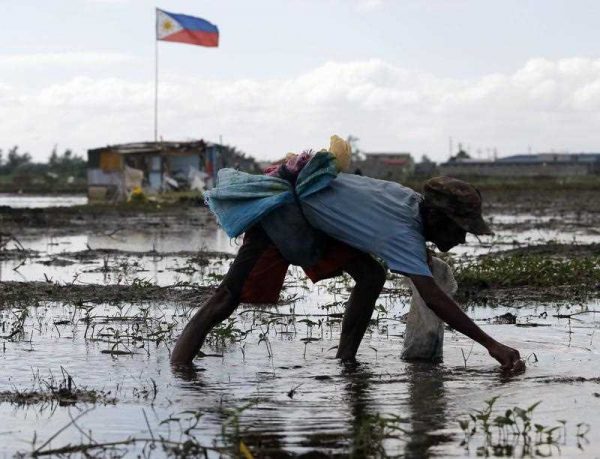The population of the Philippines now stands at a little over 100 million citizens. This makes it the 12th most populous nation in the world. Such a mammoth population presents many challenges for the country’s development. These include unemployment and burgeoning pressures on the state to provide social services and infrastructure across the country. But food scarcity is by far the most frightening prospect facing the Philippines.
In 2015 the Philippines had a Global Hunger Index of 20.1 on a scale between one and 100. While this represents a significant decrease from its 1990 level of 30.7, this classification means that hunger is still considered a ‘serious’ problem for the Philippines.
It would be foolish for any Filipino politician not to treat food scarcity as a hot-button issue in their campaign agenda. Food security is now universally recognised as one of the most pressing global concerns of our time. The United Nations’ 2030 Agenda for Sustainable Development identified food security as the second most important goal. It states that by 2030 nations must ensure ‘sustainable food production systems and implement resilient agricultural practices that increase productivity and production, that help maintain ecosystems, that strengthen capacity for adaptation to climate change, extreme weather, drought, flooding and other disasters and that progressively improve land and soil quality’.
Unfortunately the Philippine government itself admits that the country’s current food security policy framework is unsatisfactory. This makes it all the more alarming that all five presidential aspirants have yet to present coherent and comprehensive food security policy platforms.
Food production and climate change will prove to be an extremely delicate and contentious issue for all national governments in the future. 2016 could be even more challenging than usual for the Philippines because the El Niño phenomenon is expected to persist until the third quarter. This could lead to water shortages, erratic rains and increasingly extreme weather conditions. And that is not to mention the 20 or so typhoons expected to hit the country this year.
These problems posed by Mother Nature are compounded by man-made challenges that make devising a viable food security platform even more difficult for the Philippines. Certain regional powers have never been shy in influencing Filipino politicians to prioritise commercial gains over ensuring food security and sustainability. Australia for instance has unabashedly declared their preference that the new president give utmost priority to mining developments.
Addressing the struggle between developing a sound and sustainable agricultural economy and meeting international trade obligations should be part and parcel of a viable food security plan. But, at the same time, any sustainable food security plan must emphasise environmental preservation. The recycled proposals coming from these presidential candidates, such as maximising feeding programs and building more farm-to-market infrastructure, are simply not enough.
In November 2015, youth leaders from all over the Philippines held a National Youth Congress on Food, Nutrition and Ecological Agriculture precisely to exhort all five presidential candidates to do better. One of the participants made a statement that deftly summarised the responsibilities of the presidential candidates: ‘Now more than ever, with the challenges brought about by the changing climate, ageing farmers, nutrition security, disaster response and environmental protection, we need comprehensive, holistic, and responsive policies on food and agriculture that can act to the growing needs and concerns of the Filipinos’.
All five presidential candidates should also be aware that ignoring the issue of food security could have dire consequences for their electoral aspirations. Young people comprise about 40 per cent of the estimated 54 million registered voters in the Philippines. Due partly to growing political awareness among Filipino youth, this demographic is that most likely to demand a sound and viable food security policy framework.
Securing the Philippines’ food supply will be even more important as the population continues to grow beyond the 100 million mark. Given the Philippines already faces significant challenges feeding its population, it is inexcusable for policymakers to ignore the country’s growing population. Any proposed economic development platform should be explicitly anchored in this reality. Campaign agendas that do not address the Philippines’ growing population should be criticised as dubious and even irresponsible.
Michael Henry Yusingco is a freelance legislative and policy consultant based in Melbourne. He has a Masters degree in Law and Development from the University of Melbourne Law School.

